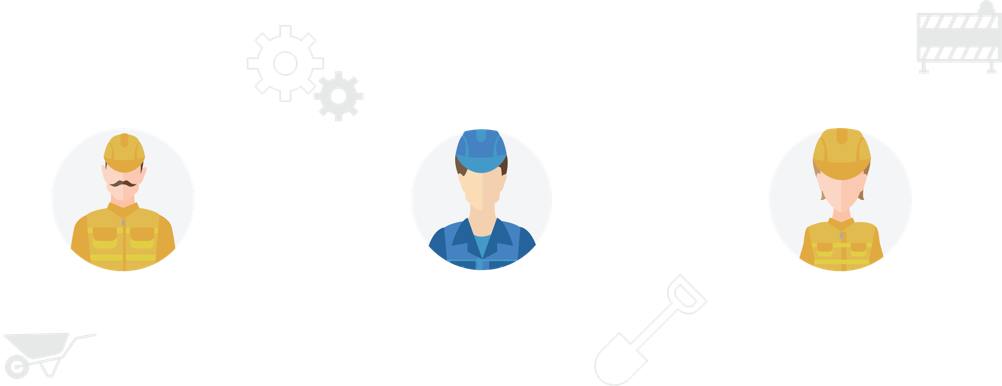
Light Rail Overhead Contact Systems Linepersons help ensure that light rail transit systems are working correctly. They are responsible for building and maintaining lighting systems, electrical track switch systems, contact conduct systems, and aerial feeder systems. This could mean working with any of the parts or equipment involved in the creation and maintenance of a light rail system, including conductors, switches, transducers, air compressors, track gauges, hydraulic presses, voltmeters, ammeters, puller-tensioner machines, and hoisting equipment.
Job Related Skills, Interests and Values
- Safely using hand and power tools
- Working with electrical and lighting equipment
- Maintaining tools and equipment before and after use
- Knowing, understanding, and applying safety procedures to the job
- Inspecting worksites for potential problems or dangers
- Diagnosing and repairing any necessary problems
What Preparation and Training Do You Need?
- Grade 12 legal minimum; tech education, math, and science/physics credits assets
- While not mandatory, completion of an 8,000-hour apprenticeship, including a combination of on-the-job and in-school training, is recommended
What's Your Future as a Light Rail Overhead Contact Systems Lineperson (207S)?
- May work outdoors in various weather conditions
- Safety is a high priority in this job
- As cities build/expand light rail systems, employment in this field expected to rise
- Employers include cities, municipalities, and public transportation companies
Wage Rate
Apprentice wage increases with skill and experience. Fully qualified workers earn an average of $15.00-$30.00 per hour.
Self-Rating
Light Rail Overhead Contact Systems Lineperson (207S)
| Ask Yourself: | Yes | No |
|---|---|---|
| Do you have good manual dexterity, an eye for detail, and enjoy working with your hands? | ||
| Are you able to work indoors and outdoors? Are you comfortable working at all heights? | ||
| Can you lift 50lbs comfortably? | ||
| Are you able to follow Health & Safety guidelines? | ||
| Do you have good communication skills? | ||
| Are you reliable, a self-starter and able to work with minimal supervision? | ||
| Are you interested in travelling for work? |
If you checked YES to the majority of these questions, a career as a Light Rail Overhead Contact Systems Lineperson (207S) may be for you!
You might want to look at these similar trades as well;
- Industrial Maintenance Mechanic Millwright
- Bearings Mechanic
- Facilities Maintenance Mechanic
- Machine Fitter
- Construction Millwright
Construction Millwrights install, maintain, and troubleshoot industrial machinery, mechanical equipment, and other automated and robotic systems. They primarily service the construction industry and often work closely with other tradespeople, such as pipefitters and electricians.
Facilities Mechanics maintain building equipment and system components, including those for heating/ventilation and domestic appliances. They also inspect and perform maintenance on plumbing, air conditioning, and low-voltage electrical systems; inspect fire safety equipment; maintain the building envelope, roofing, and exterior; and perform grounds maintenance.
Metal Fabricators (Fitters) make and repair parts used in the construction of buildings, bridges, tanks, towers, boilers, pressure vessels, and other structures. They lay out, cut, and fabricate structural steel, plate, and different ferrous and non-ferrous metals used in the manufacturing and construction industries.
Bearings Mechanics disassemble, inspect, repair, and clean bearings, seals, and chocks.
Industrial Mechanic Millwrights install, maintain, repair, and remove stationary industrial machinery, mechanical equipment, and automated and robotic systems. They most often carry this work out in industrial plants and factories.